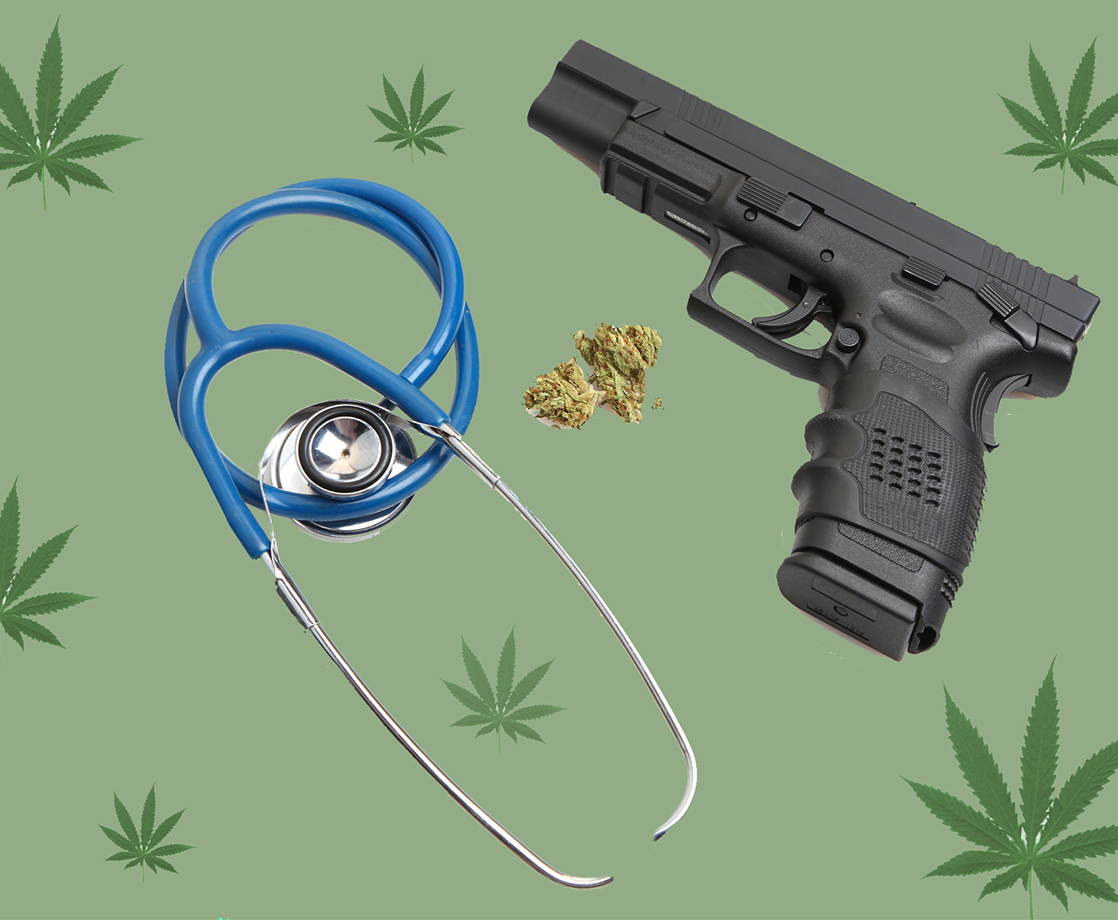Pennsylvania cannabis regulators announced last week that they will not make their registry of medical marijuana patients available on a computer database used by state law enforcement. The state's medical cannabis law requires that all patients register with the state, and regulators initially decided to make this information available on JNET, a police database containing criminal records and facial recognition information. This database is currently visible to around 38,000 law enforcement and public safety officials.
The decision to share personal information with the police outraged medical marijuana patients and cannabis activists, and the state Health Department eventually decided to backtrack on this decision. Health Department spokeswoman April Hutcheson told the Associated Press that this policy change was made "through a collaboration between the governor's office and agencies to address patient concerns." Now, if police need to verify whether or not a patient is legitimately allowed to use cannabis, they will need to check the patient's medical marijuana ID card.
"Medical marijuana is an important medication for Pennsylvanians suffering from serious medical conditions," Hutcheson said. "It's essential that we treat medical marijuana as we would any other medication, and that we protect patient privacy in the process. As with any other health information, patient information regarding medical marijuana is not accessible to police."
Although the decision is a win for the privacy of MMJ users in the state, it also impacts patients' Second Amendment rights to bear arms. Federal law prohibits cannabis users, even state-legal medical marijuana users, from owning firearms or ammunition. John T. Adams, president of the Pennsylvania District Attorneys Association, warned medical marijuana patients in the state that they are "going to have to make a choice," ABC News reports. "They can have their guns or their marijuana, but not both."
The debate over cannabis and Second Amendment rights is currently raging in numerous canna-legal states. In 2015, several Illinois MMJ patients had their firearms licenses revoked over their cannabis use, but officials reversed their decision after public pressure and negative press. A similar situation happened in Hawaii, where Honolulu police sent letters to firearm-owning medical marijuana patients demanding that they turn over their guns to the police. Again, the department backtracked and allowed patients to keep their guns. That said, more debates over gun ownership are springing up in other states with new medical marijuana programs, like Ohio and Maryland.
The Health Department's decision not to share their patient directory with JNET makes it less likely that a Pennsylvania medical marijuana patient will be automatically flagged during a routine federal background check. Several state government officials have expressed support for medical marijuana users' firearm rights, including Gov. Tom Wolf, who said that the state has no plans to take patients' guns. Last week, state House Republican Leader Dave Reed recommended that voters call their representatives to "urge them to make gun ownership legal for medical marijuana card holders."











